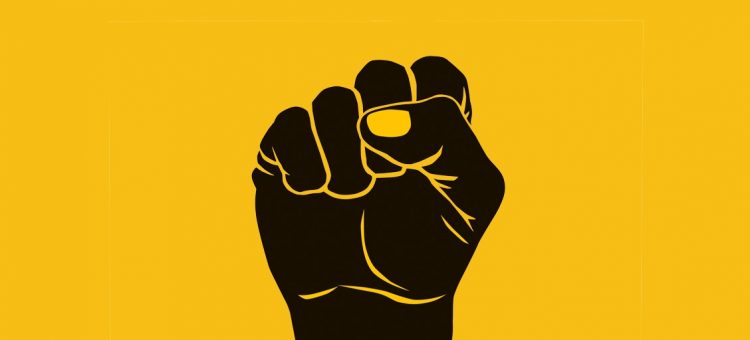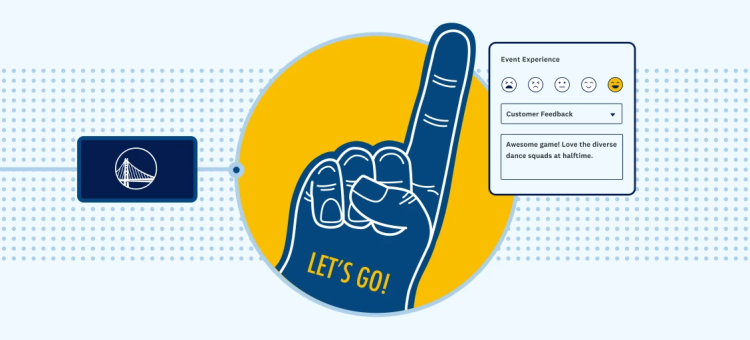Between May 26th and June 7th the tag #BlackLivesMatter was used on Twitter an average of 3.7 million times a day—the highest usage of that hashtag since Pew Research started tracking it in 2013. And the interest is not limited to the U.S.: Google Trends show searches for “George Floyd”—a Black man who was killed by police in Minneapolis on May 25—on almost every continent. The world is having a widespread, powerful conversation about racial injustice.
As the conversation evolves, many companies are taking a public stand—and while you might think that people want businesses to “stay in their lane,” the data says otherwise. According to our most recent polling research, 68% of people approve of business leaders speaking out on social or political issues.
SurveyMonkey’s recent data suggests that the public conversation of the past few months is affecting many people’s awareness of racism and inequity. The majority of Americans from every racial background now recognize the injustices that Black people face. While there is still a very long way to go, this awareness could be a first step to positive change—and businesses have a responsibility to help lead the way to change.
Note: to see all our racial justice resources for customers and partners, visit our page for racial equity.
Racial injustice has the nation’s attention
Most people in the U.S. are not blind to modern racism. In a June 3rd survey of almost 7,000 people across the country, the vast majority acknowledged inequity.
- 60% of people think racial discrimination is an “extremely serious” or “very serious” problem for the country, and only 5% don’t believe that it is a problem at all.
- 86% of people think that white people have societal advantages that Black people don’t have
- 76% of people believe that police officers treat some groups differently from others
- 86% of people say they followed the news coverage of George Floyd’s case closely
Unsurprisingly, Black respondents were the most cognizant of the problem, but even among white people (who made up the majority of the survey takers, since our polling research is balanced to reflect the U.S. population), very few would deny that a problem exists.
In our Black Women’s Equal Pay Day study in August of 2019, sentiments looked a little different.
- 43% of the respondents in that research said that “the obstacles that made it harder for Black women to get ahead are now largely gone”
- 50% of respondents said they thought Black women made the same amount of money as white men for doing similar work (the reality is that Black women make 62 cents for every dollar a white man makes doing similar work)
You can’t draw definite conclusions without a longitudinal study (asking identical questions over time)—but those numbers paint quite a different picture than our latest research. It’s possible that our new awareness is starting to change mindsets.
Racial inequity is a business problem
The next step after building awareness is taking action. Companies are uniquely positioned to champion positive change, and many have chosen to do so in light of the recent events. Organizations from Nike to Google to Ben & Jerry’s have offered extra written and financial support of racial justice on top of all their previous Diversity, Equity, and Inclusion (DEI) initiatives.
But as companies articulate their values around racial justice, they also need to commit to tangible steps for pursuing equity both internally and externally. With opposition to activism quite low (68% of people approve of business leaders having stances on social or political issues), a more serious criticism facing companies today is that those that take a stand for equality don’t live up to their ideals or worse—don’t try to.
Diversity, equity, and inclusion are core parts of any healthy, ethical business, but there is still a long way to go until they become the norm, as the Black Women’s Equal Pay Day data makes clear:
- While 31% of white men and 27% of white women have had a mentor or sponsor at some point in their career, just 2 in 10 black women have had a similar advocate or role model
- White men and women (33% and 30%) are far more likely to have ever had job or executive leadership training than Black women (19%).
- Just 27% of Black women have worked for companies that have policies in place to support balancing work and family demands
As the world demands change, it’s time for companies to step forward and create it. In a recent interview, retiring Veon chairman and former Xerox CEO Ursula Burns urged business leaders not to wait for "another generation [of people of color] to go by the wayside—people who can be helpful, who can increase shareholder value, who can truly represent the stakeholders and create a just corporate America."
It’s up to businesses—SurveyMonkey included—to step up and pursue that more diverse, equitable business world. You can read about the work we’re doing to make SurveyMonkey a more fair and equitable workplace here.
SurveyMonkey resources for measuring and addressing Diversity, Equity, and Inclusion at your workplace
Just like on the societal level, open conversation about racial equity in the workplace is a good first step toward change. SurveyMonkey has a few free resources for measuring and supporting Diversity, Equity, and Inclusion that you might be interested in checking out.
- Survey templates for measuring Diversity, Equity, and Inclusion
- A guide for using diversity and inclusion surveys and acting on the feedback (including advice from 5 DEI experts)



